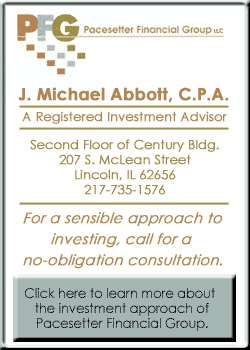|
Alan
Greenspan currently serves as chairman of the United States
Federal Reserve System. According to authors David Sicilia and
Jeffrey Cruikshank, Greenspan is the person most responsible for
"the unprecedented power and influence it (the Federal
Reserve) wields today over global financial markets." In
their new book "The Greenspan Effect," Sicilia and
Cruikshank investigate Greenspan’s effect on global markets by
examining key passages from his speeches and public comments.

In
the introductory chapter entitled "The Power of
Greenspan," the authors state their three goals in writing
this book: to make Greenspan accessible to a wide audience; to
offer investors an effective guide to understanding the
"Greenspan Effect"; and to look forward and try to
anticipate the Fed chairman’s future comments and
pronouncements.

Why
is it important to watch Greenspan and decipher his past and
future comments? The authors explain that the Federal Reserve
enjoys new power in world markets and that Greenspan has guided
the Fed to this position of influence: "The Fed’s new
potency results in part from the rapid globalization of trade,
banking, and economic policymaking in the last generation. But it
also results from the long shadow cast by its remarkable chairman.
Alan Greenspan has held the reins of power for more than a decade,
and in that period he has made few mistakes…unlike the
politicians, Greenspan has never allowed political distractions or
personal foibles to interrupt his chosen course."

The
book is divided into broad subject categories that reflect the
thoughts and comments of Greenspan on different economic subjects.
In "Words That Lift Markets," excerpts from his speeches
are used by the authors to explain "what Greenspan sounds
like when he really, truly doesn’t think a rate change is
needed…what Greenspan doesn’t say when the Fed plans to do nothing."
(To
top of second column)
|

The
section entitled "Words That Sink Markets" analyzes the
chairman’s comments on inflation, labor markets and the perils of
international financial influences. It is in this section that the
authors include their analysis of the most celebrated comment to
date by Greenspan – the now famous "irrational
exuberance" statement made in a speech given on Dec. 5, 1996.
The interpretation of this remark, given in the context of the
decade-long problems of the Japanese market, was clear: stocks are
overvalued.

Other
interesting sections include "Remaking Financial
Institutions" (Social Security, banking and federal deposit
insurance); "World Crisis Manager" (the Asian crisis, the
crash of 1987 and the Gulf War); and "Critical
Investments" (American education, small business finance, farm
economy, etc.).
One
of the more interesting sections is "Greenspan Looks Toward the
21st Century." This is based in part on Greenspan’s
twice-a-year appearance before Congress to predict future economic
trends and their effect on the American economy and stock markets.
It is a responsibility he accepts but is not necessarily comfortable
with; he once noted that "ancient soothsayers may have been
able to penetrate the future…but unfortunately they chose to
vouchsafe precious few tricks of their trade to today’s central
bankers." This, according to the authors, helps explain the
Greenspan Effect and its impact on the global economy: "The
Greenspan Effect is all about interpreting the past, and
interpreting the future based on that past – even when it makes
the soothsayer and his audiences uncomfortable."
"The
Greenspan Effect" is a fascinating look at one of the most
influential Americans of the last decade. By dividing the book into
broad subject categories, the reader can choose and read Greenspan’s
comments on a wide range of economic topics. The text is
interspersed with quotations from Greenspan’s speeches and the
authors’ interpretations of these quotations. The book contains a
notes section listing the sources that were used. A bibliography of
books and periodicals pertaining to the subject is also included.
This
book is highly recommended for a wide audience of readers, including
investors, students of economics and those interested in the effect
of Alan Greenspan on the American economy and the world’s
financial markets.
For
more information, visit the library at 725 Pekin St. or call
217-732-8878.
[Richard
Sumrall, Lincoln Public Library District]
|

